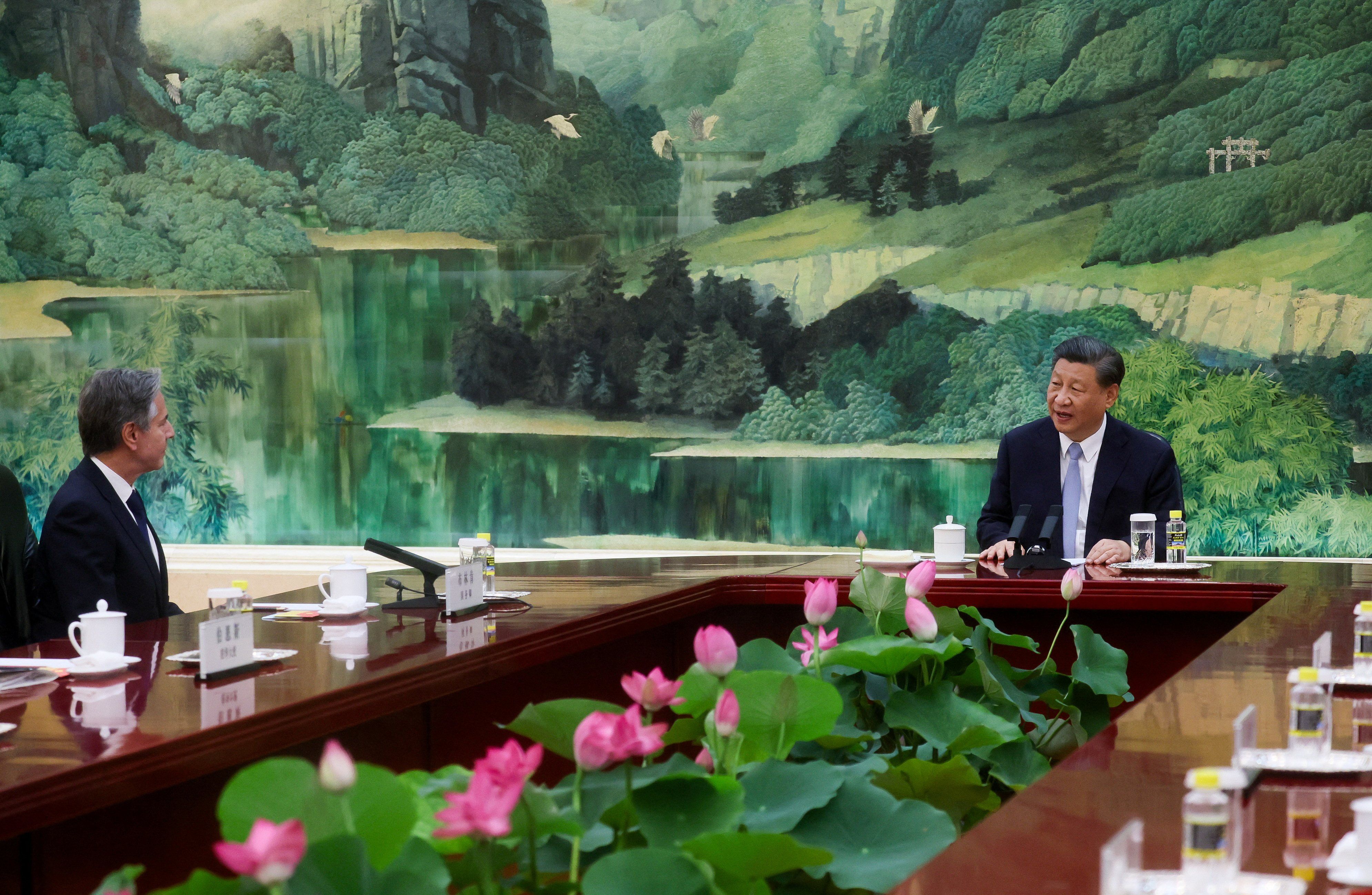While there was no major breakthrough from US Secretary of State Antony Blinken's much-anticipated meeting with Chinese leader Xi Jinping in Beijing on Monday, how it went depends on how you view the immediate future of fraught US-China ties.
If you see the glass half-full, the mutual vibes were a tad less frosty than in February, when they hit rock-bottom after Blinken postponed his trip over balloon-gate. Xi admitting some progress was made is the strongest sign to date that he's willing to call a time-out before things spiral out of control over things like economic decoupling, Taiwan, trade, or Russia's war in Ukraine.
But if you see the glass half-empty, the expectations were so low that just talking again might be as good as it gets. Indeed, the pleasantries won’t move the two sides anywhere near repairing their strained relations, and Blinken’s call to resume military-to-military comms in order avoid further close calls in the South China Sea and near Taiwan fell on deaf Chinese ears (Beijing blames the radio silence on US sanctions against China’s military).
What’s more, the most senior US visit to China since 2018 did not immediately produce a long-sought invitation for Xi to meet Biden at November's APEC summit in San Francisco.
If you just see a glass with some water in it, the meeting was just ... a meeting. And whether the two are on a path toward easing US-China tensions depends on whether the high-level diplomacy momentum continues.